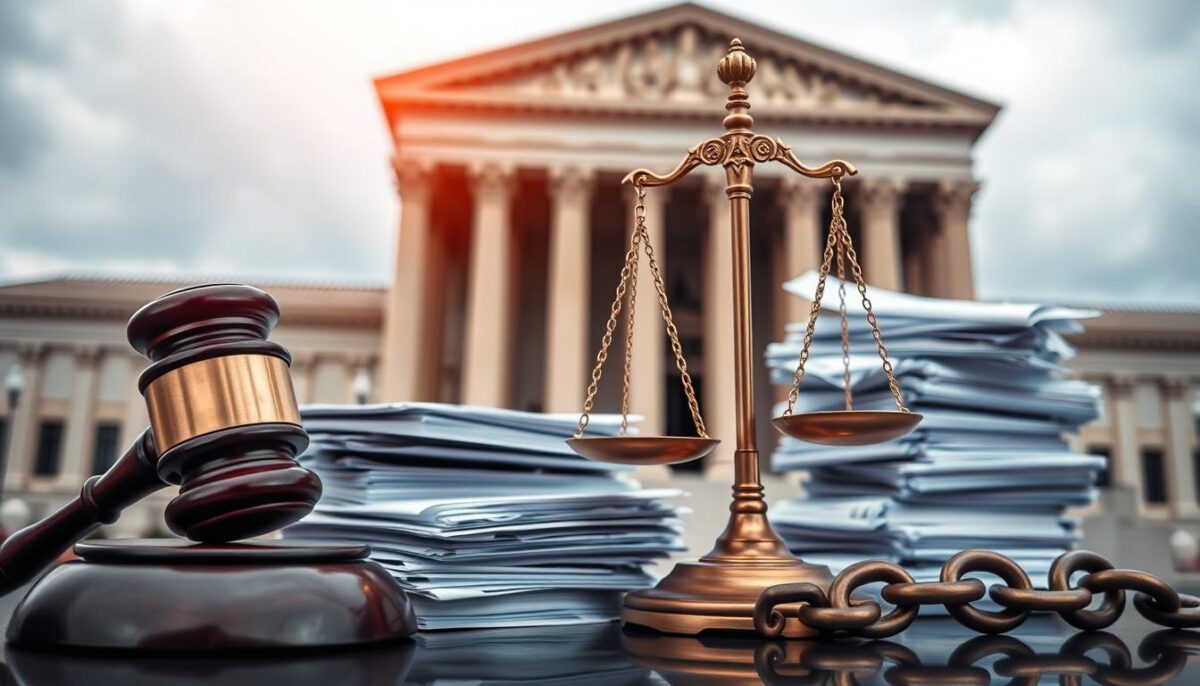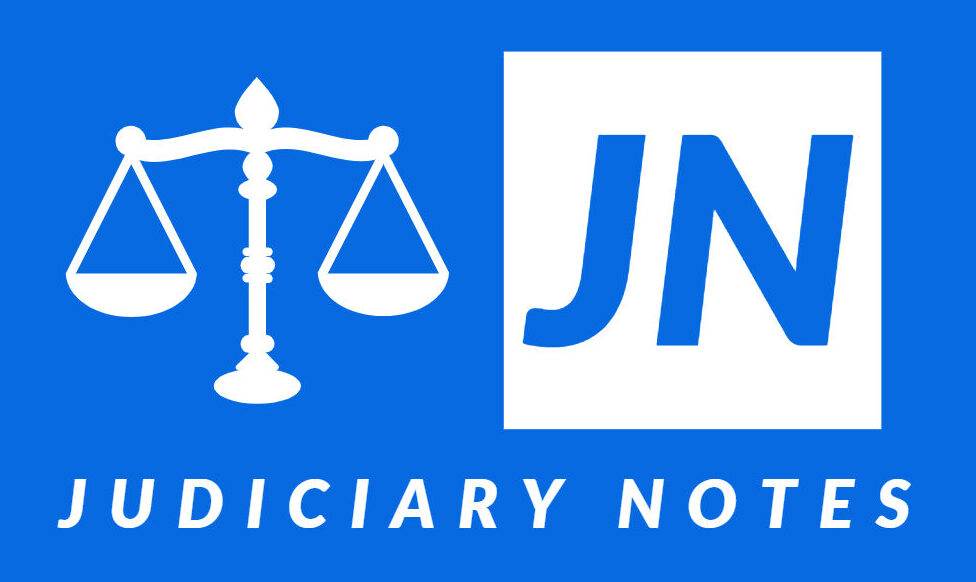As I delve into the fascinating landscape of legal professions, I realize the significance of understanding the different fields of law explained. With over 21 legal specialties, it becomes clear that law specialties demystified is not merely an academic exercise but a vital aspect of career planning for aspiring attorneys. Throughout my exploration, I’ll highlight how certain areas cater to diverse interests, allowing individuals to make informed decisions regarding their legal careers.
From criminal law, where professionals may represent either the prosecution or the defense, to civil rights law, which encompasses critical issues like discrimination and police brutality, there is a rich tapestry of disciplines that shape our society. Furthermore, corporate law, environmental law, and family law tackle unique challenges that require expertise and a deep understanding of various regulations and human relationships.
Understanding various law disciplines enables individuals to discover their passions and strengths, ultimately guiding them toward fulfilling careers in a field that values both intellect and advocacy. Join me as we explore these diverse areas, examining their key components and offerings in today’s legal framework.
Understanding Various Law Disciplines
In exploring the extensive realm of legal studies, I find it essential to highlight the numerous law disciplines available, which showcase the types of legal practices outlined. Each discipline represents a unique area where legal expertise plays a critical role, addressing various needs within society. This understanding enriches our knowledge of law and underscores its importance in our daily lives.
Overview of Legal Specialties
Numerous legal specialties exist, each serving different functions and societal needs. Here are some key areas:
- Admiralty Law: Governs maritime matters including shipping and navigation.
- Patent Law: Secures exclusive rights for inventors through the U.S. Patent and Trademark Office.
- Criminal Law: Involves prosecutions for crimes as defined by public laws.
- Constitutional Law: Focuses on interpretations of the U.S. Constitution.
- Business Law: Covers legal issues related to commerce such as liability and licensing.
- Intellectual Property Law: Protects inventions, trademarks, and copyrights.
- Health Care Law: Addresses regulations pertaining to public health and patient rights.
- Environmental Law: Developed from federal laws enacted to safeguard the environment.
- First Amendment Law: Defends citizens’ rights to free expression against governmental restrictions.
Main Categories of Law
The diverse law sectors explained can be organized into several significant categories. Each category reflects specialized legal practices and knowledge areas:
| Category | Description |
|---|---|
| Criminal Law | Deals with offenses against the state and their legal consequences. |
| Civil Law | Concerns disputes between individuals or organizations, involving compensation. |
| Family Law | Covers legal issues surrounding family relationships. |
| Corporate Law | Involves the legal aspects of businesses and corporations. |
| Property Law | Focuses on ownership rights and real estate issues. |
The Different Fields of Law Explained
In this exploration of various legal specialties, I aim to clarify the distinct fields of law. Understanding these specialties provides significant insights into how they operate and their relevance in contemporary society. Each area of law has its purpose, addressing unique issues and challenges which arise in everyday life. Legal fields clarified through this discussion will help you appreciate the diversity present in the legal profession.
Overview of Legal Specialties
Several specialized legal fields cater to specific sectors and societal needs. Legal professionals often focus on particular areas, allowing them to develop expertise essential for navigating complex legal matters. Here are some noteworthy legal specialties:
- Animal Law: Addresses the welfare and rights of animals, including regulations affecting animal protection.
- Education Law: Governs the rights of students, teachers, and educational institutions, while ensuring compliance with state and federal regulations.
- Health Law: Focuses on compliance and regulatory issues in healthcare, including patient rights and medical ethics.
- Intellectual Property Law: Protects creative works, with emphasis on copyrights, patents, and trademarks.
- Immigration Law: Governs the legal status and rights of individuals seeking to enter or reside in a country.
Main Categories of Law
The following table outlines common categories of law, providing insight into their distinct roles and implications:
| Category of Law | Description |
|---|---|
| Criminal Law | Concerns offenses against the state, including prosecution and defense in criminal cases. |
| Civil Law | Focuses on non-criminal disputes between private parties, resolving issues through litigation. |
| Family Law | Covers matters such as divorce, child custody, and domestic violence. |
| Commercial Law | Involves advising businesses on legal issues, including contracts and transactions. |
| Environmental Law | Regulates human activities impacting the environment, driven by treaties and statutes. |
| Employment Law | Adds legal structure to the employer-employee relationship, ensuring rights and duties are maintained. |
Criminal Law and Its Importance
Criminal law serves as a crucial mechanism for maintaining order and enforcing justice within society. A comprehensive criminal law overview reveals that this legal discipline categorizes crimes into three main groups: felonies, misdemeanors, and infractions. Felonies are the most serious offenses, leading to severe punishments such as imprisonment in state prison or even death. Common examples of felonies include murder, robbery, and drug trafficking.
Misdemeanors, on the other hand, are less serious crimes, typically resulting in shorter sentences in county jail or fines. Offenses such as vandalism and disorderly conduct fall into this category. Infractions represent the least severe violations, often punished by fines without any imprisonment, like minor traffic violations and jaywalking. This classification underscores the importance of legal distinctions in ensuring appropriate responses to varying degrees of criminal behavior.
Within the criminal justice system, the significance of criminal justice not only revolves around punishment but also emphasizes the principles of individual rights and public safety. The burden of proof lies with the prosecution, which must demonstrate a defendant’s guilt beyond a reasonable doubt. This high standard is designed to protect the rights of the accused and minimize the risk of wrongful convictions. Juries, typically composed of 6-12 individuals, must arrive at a unanimous verdict, reflecting a collective belief in the defendant’s guilt or innocence.
The interplay between the roles of defense attorneys and prosecutors exemplifies the adversarial nature of criminal proceedings. Prosecutors decide whether to bring charges, while the defense has the essential right to present evidence and contest the prosecution’s claims. By ensuring a fair trial, the criminal justice system strives to uphold justice while deterring crime and promoting rehabilitation for offenders.
Civil Rights Law and Advocacy
Civil rights law plays a crucial role in defending individual liberties and combating discrimination in various sectors. I find it essential to explore the key areas that define this legal domain, such as employment discrimination, police brutality, and voting rights. This branch of law serves as a bedrock for advocacy in civil liberties, ensuring that all individuals enjoy equal protection under the law.
Key Areas in Civil Rights Law
Understanding civil rights law involves examining several significant areas. Below are notable aspects:
- Employment Discrimination: Protects individuals against unfair treatment based on race, gender, age, or disability in the workplace.
- Voting Rights: Ensures every citizen has the opportunity to participate in the electoral process without facing legal barriers.
- Police Brutality: Addresses unlawful and excessive use of force by law enforcement officials against citizens.
Notable Cases and Legal Precedents
Several landmark cases illustrate the application of civil rights law. Notable precedents include:
| Case Name | Year | Significance |
|---|---|---|
| Brown v. Board of Education | 1954 | Declared racial segregation in public schools unconstitutional. |
| Roe v. Wade | 1973 | Addressed women’s rights to privacy and autonomy over reproductive choices. |
| Ferguson v. Charleston | 2001 | Held that discriminatory medical practices violate the Civil Rights Act. |
Corporate Law: Navigating Business Regulations
Corporate law encompasses various legal aspects essential for the successful operation of businesses. My exploration of corporate legal frameworks reveals an intricate system vital for navigating both local and federal regulations. Understanding business law essentials involves familiarizing oneself with topics such as contracts, corporate governance, taxes, and consumer protection.
One critical area I observe in corporate law is mergers and acquisitions. Corporate lawyers play a pivotal role in these processes, addressing legal complexities and ensuring compliance with securities regulation. These professionals help businesses effectively manage their finances while implementing strategies tailored for taxation and corporate governance.
Additionally, businesses must be aware of unfair practices that can lead to serious legal consequences. Issues such as discriminatory hiring, wage-related disputes, and workplace safety not only harm employees but also expose companies to litigation risks.
For small-business owners, comprehending the intricacies of retail contracts, employment law, and commercial transactions is essential. These areas are part of their daily operations and impact their bottom line. Developing compliance programs tailored to specific industries aids businesses in adhering to laws, safeguarding against penalties that may jeopardize their existence.
The specialization within corporate law is vast. For instance, corporate tax lawyers focus on optimizing tax strategies, ensuring compliance during financial activities, and advising on implications of business decisions. Similarly, environmental lawyers navigate legal issues related to sustainable practices, contributing to responsible business operations in today’s eco-conscious world.
At the heart of corporate law lies the necessity for rigorous corporate governance. Providing advice on board structure, executive compensation, and shareholder rights aligns with maintaining transparency and accountability in business decision-making.
Environmental & Natural Resources Law
Environmental legal practice plays a crucial role in regulating and managing the aspects of our planet that are directly affected by human activity. This area of law encompasses various issues, including air and water quality, climate change, and the conservation of biodiversity. Natural resources legislation forms the backbone of policies that seek to protect these essential aspects of our environment and ensure sustainable resource use.
Issues Addressed in Environmental Law
Environmental law focuses on multiple pressing issues that demand legal intervention. Key areas include:
- Pollution Control: Laws like the Clean Air Act and Clean Water Act aim to regulate pollutants and set standards for air and water quality.
- Waste Management: The Resource Conservation and Recovery Act (RCRA) provides guidelines for managing hazardous waste to minimize risks to public health and the environment.
- Environmental Justice: Legal frameworks address disparities in environmental hazards, ensuring that vulnerable communities receive adequate protection and representation.
- Climate Change: Environmental lawyers are at the forefront of advocating for laws and regulations that address the implications of climate change on natural resources.
Careers in Environmental Law
A variety of career paths are available in environmental legal practice, ranging from roles in government agencies to positions in non-profit organizations. The Texas A&M School of Law prepares students through foundational courses such as Oil & Gas Law, Energy Law, and Water Law. This program also offers specialized courses for deeper insights into specific areas of interest.
Some notable career opportunities include:
| Career Path | Potential Employers | Key Skills Required |
|---|---|---|
| Federal Government Lawyer | EPA, DOE, Department of Interior | Regulatory analysis, policy formulation |
| Non-Profit Advocate | Environmental NGOs | Public speaking, legal research |
| Private Practice Lawyer | Law firms specialized in environmental law | Litigation skills, negotiation |
| Corporate Counsel | Businesses with environmental compliance needs | Contract negotiation, compliance expertise |
As the demand for environmentally conscious legal practices grows, opportunities in this sector expand, fueled by concerns such as energy law and food law, which rank among the top ten hot practice areas according to National Jurist. My experience has shown that understanding natural resources legislation can lead to rewarding and impactful careers.

Family Law: Addressing Personal Relationships
Family law encompasses the legal aspects of family issues, covering a multitude of topics such as divorce, custody, child support, and adoption. This area of law has evolved significantly and continues to adapt, particularly with the emergence of one-parent families, which have gained prominence since the 1970s. Understanding this family law overview provides crucial insight into the complex emotional and legal dynamics involved in maintaining family relationships.
Traditionally, family law has been interconnected with property law, where concepts such as guardianship, custody, and legitimacy relate to family power structures and economic interests. In contemporary practice, various legal systems treat marriage as a contractual arrangement with specific clauses, particularly within Islamic law. In many modern contexts, the economic dimensions of marriage are often dictated by separate agreements between spouses, reflecting growing individual autonomy.
In the realm of divorce, legislation in several North American and Western European jurisdictions has broadened the grounds for dissolution, greatly facilitating the process when both parties reach a mutual agreement. Community property laws recognised in nine states, including California and Texas, illustrate how economic interests factor into marital relationships. Moreover, the uniformity brought by laws such as the Uniform Child Custody Act across all states and the District of Columbia highlights the standardization of crucial aspects of custody arrangements.
Alimony represents another significant issue in family law, often awarded to ensure financial stability for the lower-earning spouse following a separation. Expert testimony by social workers and psychologists frequently plays a critical role in child custody disputes, reinforcing the necessity for skilled family law attorneys. Their advocacy is vital in navigating not only the legal complexities of custody but also the emotional challenges for all family members involved.
To understand the various legal aspects regarding family issues, the following table outlines some essential elements:
| Aspect | Description |
|---|---|
| Divorce | Legal dissolution of marriage, with varying grounds across jurisdictions. |
| Child Custody | Determines where children will live post-separation, considering their best interests. |
| Adoption | Legal process for establishing a parent-child relationship between individuals not biologically related. |
| Alimony | Financial support for one spouse post-divorce, subject to state law. |
| Visitation Rights | Legally recognized rights for non-custodial parents or third parties, such as grandparents. |
Overall, navigating the landscape of family law requires a deep understanding of both the legal statutes and the personal dimensions of family issues. This complex interplay underscores the pivotal role family law attorneys play in advocating for the rights and welfare of families.
For further insights into family law, I encourage exploring a comprehensive family law overview which delves deeper into this vital area.
Exploring Different Areas of Law
The legal profession offers a vast spectrum of opportunities. With around 21 different fields of law highlighted, I find it a fascinating landscape for comprehensive law exploration. Each area presents unique challenges, ethical considerations, and professional growth opportunities. Below, I outline some less commonly discussed areas that are crucial for aspiring legal professionals.
- Animal Law: This field addresses the rights of animals and organizations advocating for their protection. Lawyers ensure they consider both wildlife and domesticated animals’ legal statuses.
- Admiralty Law: This area pertains to legal matters involving navigable waters, covering issues in shipping and navigation.
- Bankruptcy Law: Lawyers in this field help individuals or businesses unable to repay debts, guiding them through legal proceedings and assessing asset viability.
- Banking and Finance Law: This area regulates financial institutions and lending practices, ensuring compliance with various regulations.
- Civil Rights Law: This segment focuses on preventing discrimination and promoting equal treatment in employment, housing, and religious liberties.
- Constitutional Law: Attorneys interpret and amend the U.S. Constitution, often engaging in court cases that shape legal precedents.
- Corporate Law: Corporate lawyers manage legal aspects concerning mergers, acquisitions, and other corporate governance issues.
- Education Law: In this field, legal professionals advocate for quality educational experiences for students and staff alike.
- Environmental Law: This sector examines the human impact on the environment, involving practices related to natural resource protection and pollution control.
- Health Law: A rapidly growing field due to regulatory complexities in healthcare, this area provides crucial legal advice for various stakeholders.
- Intellectual Property Law: This field benefits a broad range of professionals by protecting innovations, brands, and creative works in today’s economy.
- Real Estate Law: Real estate lawyers represent diverse clients in matters concerning property transactions, zoning, and land use.
- Water Law: This important field plays a vital role in community and environmental management, especially in significant development projects.
Legal professionals can explore these broader legal fields. With over 260 practice areas covered by platforms, the opportunities are boundless. Many aspiring lawyers can also find valuable information about their career options. For instance, I often recommend checking legal case statuses through various online resources, including this link, to stay informed about important legal procedures.

Engaging with diverse fields of law not only enriches legal knowledge but also supports making a significant impact in society. By understanding these areas, I recognize the various legal challenges and ethical dilemmas at play, which ultimately prepares me for a rewarding legal career.
| Field of Law | Focus Area | Key Challenges |
|---|---|---|
| Animal Law | Rights of animals and their protection | Legal status of diverse species |
| Admiralty Law | Shipping and navigation in water bodies | Regulations and liability issues |
| Bankruptcy Law | Debt resolution for individuals and businesses | Asset assessment and legal processes |
| Corporate Law | Mergers, acquisitions, and compliance | Risk of liability disputes |
| Environmental Law | Protection of natural resources | Balancing development with conservation |
| Intellectual Property Law | Protection of brands and creative works | Trademark disputes and infringement |
| Real Estate Law | Property transactions and zoning | Legal complexities in ownership |
Entertainment Law: Balancing Creativity and Legal Issues
In the dynamic world of entertainment, legal complexities play a crucial role in shaping the creativity and innovation that define the industry. The entertainment legal landscape integrates various domains, with intellectual property in entertainment at the forefront. This area of law encompasses not just copyright and trademark issues but also contract negotiations that are vital for artists and creators.
Practice Areas in Entertainment Law
Entertainment law comprises several practice areas, each addressing unique challenges faced by creatives. From film and music to digital content, the following key areas significantly impact the industry:
- Copyright and Licensing: Ensuring proper licensing agreements and managing rights to avoid unauthorized use and piracy.
- Contract Negotiations: Handling agreements related to royalties, endorsements, and distribution to protect the interests of artists.
- Defamation and Reputation Management: Addressing false statements that could harm public figures or celebrities, crucial in today’s media-driven society.
- Privacy and Data Protection: Balancing the insights gained from followers against privacy laws, especially with the rise of streaming services.
- Labour and Employment Issues: Focusing on compensation, working conditions, and intellectual property rights for all creative professionals in the sector.
As trends and technologies evolve, so do the legal frameworks surrounding them. Statutes like the Cinematograph Act and the Information Technology Act form the backbone of legal regulation in the industry, ensuring compliance and protecting intellectual property rights. With high-profile legal disputes and celebrity endorsements being commonplace, my awareness of these nuances not only enhances my understanding of the entertainment legal landscape but also strengthens my commitment to advocating for the rights of creators.
| Key Areas | Description | Challenges |
|---|---|---|
| Copyright | Protects original works from unauthorized use. | Piracy and infringement issues. |
| Contract Law | Manages agreements related to creation and distribution. | Disputes over terms and breaches. |
| Defamation | Addresses harm to reputation from false statements. | Public scrutiny and media influence. |
| Privacy | Regulates data handling and user rights. | Compliance with privacy laws. |
Understanding Bankruptcy Law
Bankruptcy law encompasses a range of procedures individuals and corporations undertake when facing insurmountable debt. By understanding the bankruptcy legal framework, one gains insight into various types of bankruptcies, including Chapter 7, Chapter 11, and Chapter 13. Each of these approaches serves a distinct purpose and caters to differing financial situations, providing pathways for debt relief.
Chapter 7 bankruptcy is prevalent among individuals. This form allows the discharge of unsecured debts, such as credit cards and personal loans, within approximately 90 days. It effectively provides individuals with a fresh start, yet it does not eliminate all debts. Child support, most student loans, and certain tax debts remain non-dischargeable under this financial law basics guide.
Chapter 11 bankruptcy is generally favored by corporations due to its complexity. However, individuals can also utilize this option, finding ways to reorganize their debt despite higher filing fees, which might deter many from pursuing this route. Chapter 13 offers a different avenue by allowing individuals with regular income to create a repayment plan over three to five years, with provisions extending to seven years in guidelines post-COVID-19.
The legal implications of filing for bankruptcy extend beyond immediate debt relief. Filing affects one’s credit score for several years and can lead to other significant ramifications in financial planning. Consulting a bankruptcy lawyer becomes essential, as these professionals help navigate the intricacies of bankruptcy law. They offer vital insights that can significantly impact one’s financial recovery.
I recognize the importance of understanding not just the bankruptcy options available, but also the limitations. Certain debts cannot be eliminated through the bankruptcy process, which can create challenges for those seeking relief from their financial obligations.

| Type of Bankruptcy | Who Can File | Duration | Debts Discharged |
|---|---|---|---|
| Chapter 7 | Individuals, Businesses | About 90 days | Unsecured debts like credit cards |
| Chapter 11 | Corporations, Individuals | Varies (complex process) | Reorganized debts |
| Chapter 13 | Individuals with regular income | 3-5 years (up to 7 in some cases) | Some unsecured debts |
This framework is designed to assist not only those in dire financial situations but also to ensure that the rights of creditors are duly considered. Reaching out for legal counsel is a prudent first step in this intricate financial landscape.
Employment Law: Protecting Workers’ Rights
Employment law plays a critical role in safeguarding workers’ rights across various sectors in the United States. The U.S. Department of Labor oversees more than 180 federal laws affecting approximately 150 million workers and 10 million workplaces. The Fair Labor Standards Act, for example, mandates that employers pay covered non-exempt employees at least the federal minimum wage, along with overtime pay. This framework not only protects workers but also sets a standard for businesses to follow in maintaining fair labor practices.
Moreover, workplace safety is overseen by the Occupational Safety and Health Administration (OSHA), ensuring that private industry environments adhere to established safety standards. The Family and Medical Leave Act (FMLA) further illustrates the diverse landscape of employment legal rights by granting eligible employees in larger companies the right to take up to 12 weeks of unpaid, job-protected leave for specific life events. These elements form a labor law overview that is essential for both employees and employers to understand, as it influences workplace dynamics significantly.
In addition to workplace safety and wage standards, whistleblower protections provided under various laws safeguard employees who report unsafe or illegal working conditions. Employment lawyers play a vital role in advocating for these rights, helping workers navigate complex regulations and ensuring compliance with labor laws. The intersection of these legal protections empowers employees and emphasizes the importance of robust employment law in creating equitable workplaces.

